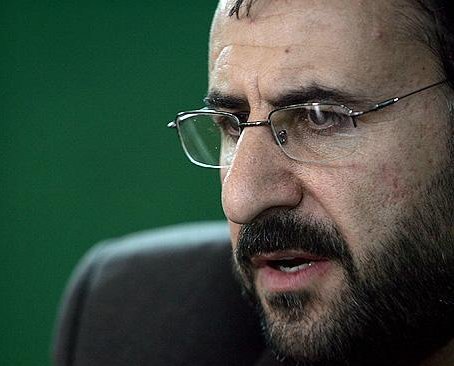MP seeking constitutional amendment to allow more leeway to Iranian troops internationally

TEHRAN – A member of the Iranian parliament’s National Security and Foreign Policy committee has called for amendments to Article 30 of the Constitution, seeking more latitude for international engagement of the Iranian troops.
“Under the article (Article 30 of the Constitution), the armed forces have to coordinate all their actions with the Foreign Ministry on foreign affairs, and this is totally wrong” said Heshmatollah Falahat-Pisheh on Monday, speaking of loopholes in the sixth five-year development plan bill.
According to Chapter 13th of the Iranian Constitution, which the Iranians supported in a referendum held two months after the 1979 Revolution, a council is responsible with addressing internal and external threats to the country.
The Foreign Ministry features in the body, the chapter stipulates.
“The problem with Article 30 is that the armed forces, in compliance with the Constitution, have important responsibilities in connection with international and foreign relations besides internal missions,” added the parliamentarian who survived an assassination attempt in July.
He, however, did not elaborate on what he meant by “international and foreign relations.”
The Iranian parliamentarian makes a case for making a constitutional amendment to Article 30 of the Constitution, saying the armed forces should act independently of the foreign ministry. Iran has two distinctive armed forces: a regular army serving as a national defense muscle, and the Islamic Revolution Guards Corps (IRGC) that was formed after the 1979 Islamic Revolution.
Beside guarding territorial borders, the forces have to take on missions worldwide to fight for the rule of the divine law.
Also, as a constitutional right, the IRGC has to protect the Islamic Republic against both internal and external threats.
“Nowhere in the world is this the case that the armed forces act in coordination with the foreign ministry when it comes to conducting intrinsic missions,” Falahat-Pisheh explained. “This is unacceptable to say that armed forces have to move forward in coordination with the foreign ministry.”
The parliamentarian said the subject was being considered at the security committee of the parliament.
Ever since 1988, after almost eight years of defending the country against the Iraqi army under Saddam Hussein, the Iranian armed forces have not been engaged directly on the battlefield.
However, Tehran has been backing Syria and Iraq with advisory teams in a bid to help them re-take vast swathes to their lands captured by Daesh over the past years.
AK/PA
